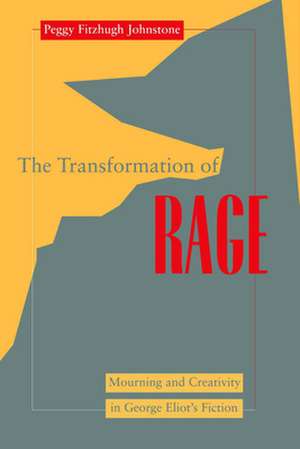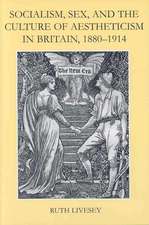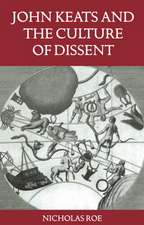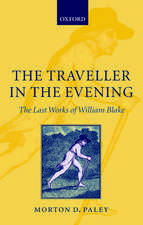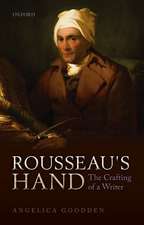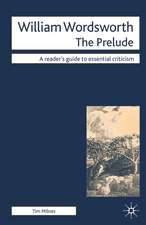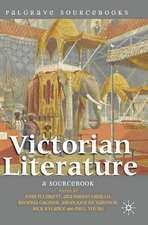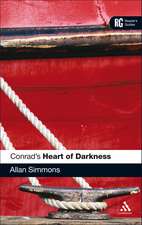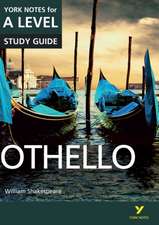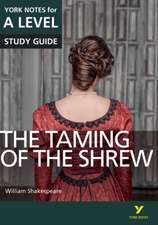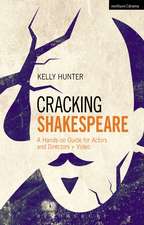Transformation of Rage – Mourning and Creativity in George Eliot`s Fiction: Literature and Psychoanalysis
Autor Peggy Fitzhugh Johnstoneen Limba Engleză Hardback – 30 sep 1994
| Toate formatele și edițiile | Preț | Express |
|---|---|---|
| Paperback (1) | 209.17 lei 6-8 săpt. | |
| MI – New York University – 31 mai 1997 | 209.17 lei 6-8 săpt. | |
| Hardback (1) | 524.97 lei 6-8 săpt. | |
| Wiley – 30 sep 1994 | 524.97 lei 6-8 săpt. |
Preț: 524.97 lei
Preț vechi: 681.78 lei
-23% Nou
Puncte Express: 787
Preț estimativ în valută:
100.45€ • 104.88$ • 83.14£
100.45€ • 104.88$ • 83.14£
Carte tipărită la comandă
Livrare economică 05-19 aprilie
Preluare comenzi: 021 569.72.76
Specificații
ISBN-13: 9780814741948
ISBN-10: 0814741940
Pagini: 224
Dimensiuni: 152 x 229 x 15 mm
Greutate: 0.47 kg
Editura: Wiley
Seria Literature and Psychoanalysis
ISBN-10: 0814741940
Pagini: 224
Dimensiuni: 152 x 229 x 15 mm
Greutate: 0.47 kg
Editura: Wiley
Seria Literature and Psychoanalysis
Recenzii
"Johnstone's description of the tumultuous events in George Eliot's work is an excellent illustration of applied psychoanalysis."
George H. Pollock, M.D., Ph.D.,
George H. Pollock, M.D., Ph.D.,
Notă biografică
Peggy Fitzhugh Johnstone is an independent scholar in Saratoga Springs, New York. She has published essays on George Eliot in Hartford Studies, Literature and Psychology, and Mosaic.
Textul de pe ultima copertă
George Eliot has been widely praised both for the richness of her prose and the universality of her themes. In this compelling study, Peggy Fitzhugh Johnstone goes beyond these traditional foci to examine the role of aggression in Eliot's fiction and to find its source in the author's unconscious sense of loss stemming from traumatic family separations and deaths during her childhood and adolescence. Johnstone demonstrates that Eliot's creative work was a constructive response to her sense of loss and that the repeating patterns in her novels reflect the process of release from her state of mourning for lost loved ones. How then does Eliot's internalized aggression, rooted in her early life, find its way into her characters? How and why is it, in turn, denied by the author? And finally, how does the process of writing fiction help resolve it? Eliot's inner rage, Johnstone argues, was transformed into works of art and gradually dissipated as she developed her creative gifts and finally achieved her sense of identity as an artist. The Transformation of Rage explores the connections between self-disorder and aggression, anxiety and creativity, and narcissism and mourning in the full range of Eliot's novels - Adam Bede, The Mill on the Floss, Silas Marner, Romola, Felix Holt, Middlemarch, and Daniel Deronda. It will appeal to a broad audience, including those interested in the nineteenth-century British novel, the life and work of George Eliot, and the interdisciplinary study of literature and psychoanalysis.
